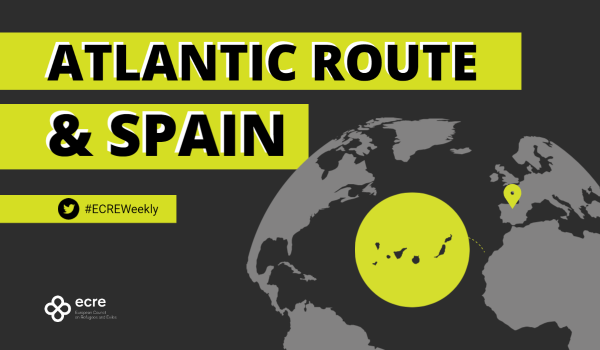Spain is pushing to include irregular migration as a “hybrid threat” to the North Atlantic Treaty Organization (NATO). The Atlantic route to the Canary Islands as well as the emerging route to the Balearic Islands in the Western Mediterranean remains deadly, as arrivals to Spain increase amid tensions with Algeria over Western Sahara.
Prior to Spain hosting a NATO summit in late June, Foreign Minister Jose Manuel Albares is pushing for the inclusion of “hybrid threats” including irregular migration in the new policy roadmap of the military alliance. “We want an acknowledgement that there are also serious threats coming from the southern flank,” Albares stated, pointing out that: “Terrorism, cybersecurity, the political use of energy resources and of irregular migration all impinge on our sovereignty”.
Data from the interior ministry reveals that Irregular arrivals to Spain has increased by roughly 20 per cent during the first four and a half months of 2022 compared to the same period in 2021 from 9,567 to 11,465. A significant number of people arrive through dangerous irregular sea routes. According to the NGO, Caminando Fronteras (Front Line Defenders) more than 4,000 people died on the Atlantic en route to the Canary Islands in 2021. The total number of arrivals last year exceeded 22,000 and with more than 8,000 arrivals over the first four months of 2022, there are no sign of a slowing activity on the deadly route. While the Canary Islands has seen the arrivals of tens of thousands of people over recent years the Balearic Islands in the Western Mediterranean has reportedly seen an increase of arrivals. According to the International Organization for Migration (IOM) the islands saw more than 2,400 arrivals in 2021 with at least 384 people dead or missing in the Western Mediterranean after attempting to reach the Balearic Islands or the Spanish mainland. Spanish rescuers from Salvamento Marítimo recently saved four people of sub-Saharan descent who were trying to reach Tarifa in a canoe. one person is still missing and at least four people including a child have died after a boat capsized off Aguilas on the Southern coast of Spain on 8 June. On 9 June media reported the arrival of six boats to the Balearic Islands carrying 116 Algerians within less than 24 hours.
The arrivals happened amid tensions between Spanish and Algerian authorities and the suspension of a cooperation treaty which included the deterrence of irregular arrivals to Spain. Algeria cited “violation of its legal, moral and political obligations” with regard to the territory of Western Sahara when suspending the 20-year old friendship treaty – a suspension that could influence irregular arrivals from Algeria to Spain. The diplomatic spat follows the end of almost 50 years of Spanish neutrality on Western Sahara in March when Spain backed a Moroccan proposal to grant Western Sahara autonomous status opening a new front with Algeria, a main supporter of Saharawi interests. Meanwhile, Spain and Morocco is set to resume Operation Crossing the Strait allowing movement between Europe and Africa for three months after a two-year suspension due to the COVID-19 pandemic and the border crossing at Tarajal connecting Morocco and the northern Spanish enclave of Ceuta reopened in May.
In May 2021 prior to the Spanish change of position on Western Sahara while relations with Morocco were tense and Moroccan authorities allowed crossings nearly 12,000 people arrived to Ceuta. The arrivals dubbed an “invasion” by Spanish authorities included some 1,500 unaccompanied children hoping to enter the EU. However, many remain trapped and often under dire conditions. According to the NGO No Name Kitchen at least 50 minors are currently without shelter or access to food and hygiene facilities, fearing or distrusting local authorities. The organisation reports of anxiety and self-harm among these youths. “A [Moroccan] child who migrates [to Ceuta] alone, is seen primarily as a foreigner, and then as a child,” Joana Millan, who works for the NGO Maakum, told Al Jazeera, adding: “All the rights they have as children are being violated, such as the right to have a dignified life”.
Meanwhile, Spanish National Police and the European Border and Coast Guard Agency (Frontex), have launched Operation Minerva to support the border guards in checking arrivals through the ports of Algeciras, Tarifa and Ceuta.
For further information:
- ECRE, Atlantic Route and Spain: Rescues and Deadly Tragedies as Spain Strengthen Migration Deterrence Cooperation with Morocco, May 2022
- ECRE, Search and Rescue: UNHCR Call for Urgent Action over Deaths at Sea, Meanwhile Deaths Continue on the Mediterranean and Atlantic Routes, May 2022
This article appeared in the ECRE Weekly Bulletin. You can subscribe to the Weekly Bulletin here.

